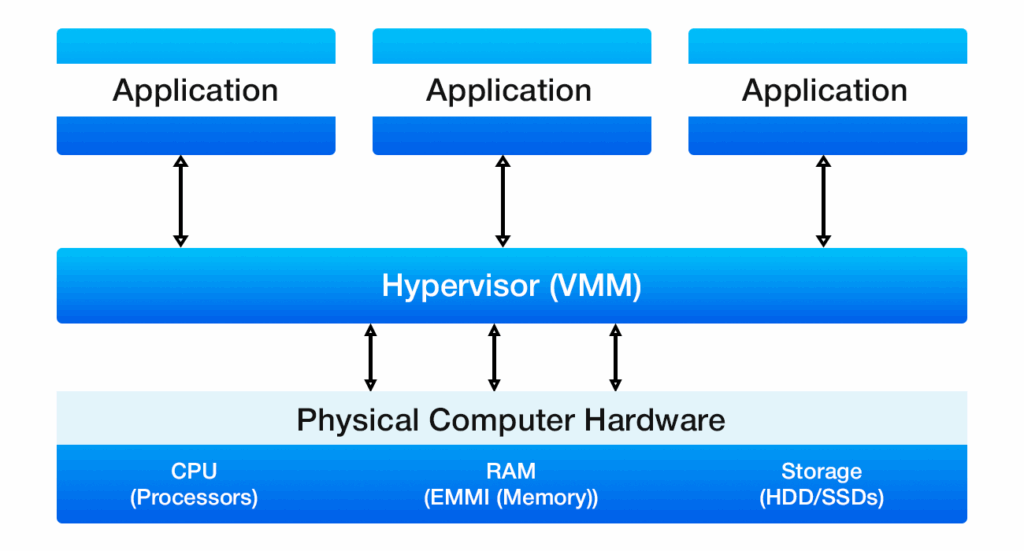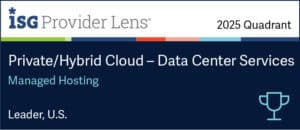A private cloud is a cloud computing environment where all the underlying computing resources, such as servers, storage, and network, are dedicated to a single organization. Due to this exclusivity and internal control, a private cloud is also referred to as an internal or corporate cloud.
Enterprises have accelerated private cloud adoption, attributed to its ability to host both traditional VM-based applications and modern containerized and AI workloads, alongside benefits such as agility, elasticity, scalability, security, data sovereignty and regulatory compliance, and customizable resource management akin to on-prem infrastructure.
United Private Cloud® is a leading example of a highly secure, scalable private cloud platform designed to support these enterprise demands with advanced software-defined infrastructure (SDI) and global reach.
Private cloud infrastructure and services can be hosted within an organization’s own data center, or at a third-party colocation facility and can be extended to edge computing locations.
Private cloud architecture relies on key technologies similar to those in public clouds.

In addition, private clouds often use containerization—a lightweight form of virtualization that packages applications and their dependencies into portable containers for efficient deployment and scalability, often orchestrated by tools like Kubernetes.
A private cloud integrates multiple storage types to address different workloads. It includes block storage for low-latency, high-throughput workloads like databases and VMs; Network Attached Storage (NAS) for seamless file sharing using file storage protocols like NFS and SMB; and object storage for managing large volumes of unstructured data, backups, and archives.
With redundancy and data protection features such as replication, snapshots, and immutable backups, private cloud providers ensure data availability, immutability, and protection against disasters like hardware failures or cyber threats.
Network virtualization abstracts and isolates physical network resources to create multiple autonomous virtual networks, enabling private clouds to segment, secure, and manage traffic independently of the underlying hardware. This underpins software-defined networking (SDN) and supports flexible network architectures such as VLANs, VXLANs, and micro-segmentation.
Additionally, private cloud networking incorporates network redundancy, high availability, load balancing, multi-layer security (with firewalls, intrusion detection), software-defined WAN (SD-WAN), and network function virtualization (NFV), and performance optimizations such as Remote Direct Memory Access (RDMA) and NVMe over Fabrics.
Since private clouds host sensitive workloads, they ensure adherence to industry regulations such as GDPR, HIPAA, ISO 27001, etc. and data sovereignty. Alongside compliance, private cloud security typically involves multiple layers of protection to safeguard data, applications, and infrastructure from unauthorized access, breaches, and cyber threats.
Identity and access management (IAM) restricts resource access to authorized users, reinforced by role-based access control (RBAC) and multi-factor authentication (MFA). Encryptions protect data at rest and in transit, while continuous monitoring with intrusion detection/prevention systems (IDPS) and real-time analytics enable early detection and response to security incidents.
Automation technologies streamline complex operations by managing repetitive and error-prone tasks such as server provisioning, integrations, patch management, and scaling. Additionally, built-in Agentic AI takes automation further by autonomously handling complex cloud workflows, optimizing resource use in real time, and responding to dynamic demands across the environment.
In private cloud environments, organizations also adopt cloud-centric development and deployment practices such as DevOps, DevSecOps, microservices, and containerization to accelerate agility, security, and scalability.
Moving forward, it is important to understand that private cloud solutions come in four distinct types, each designed to meet different business needs and deployment requirements.
To address rising security demands, private clouds now incorporate confidential computing, safeguarding data even while it’s in use. By leveraging trusted execution environments (TEEs), enterprises can securely process sensitive workloads—such as financial transactions, healthcare records, or intellectual property—without risking exposure to unauthorized access.
While these emerging trends are shaping the future of private cloud computing, driving enterprise agility, security, and innovation in 2025 and beyond, they are also positioning private cloud as a strategic equivalent to public clouds, offering advantages such as robust security and compliance, flexibility and control, consistent performance and reliability, scalable resources, and long-term cost efficiency.
In addition, IT modernization, seamless integration with legacy systems, and the shift toward AI-first digital transformation remain key drivers for private cloud adoption.
With 25+ years of expertise in designing, deploying, and managing mission-critical IT environments for hundreds of organizations worldwide—from Fortune 500 enterprises to U.S. government agencies—UnitedLayer has established itself as a trusted leader in private and hybrid cloud solutions as well as managed data center hosting services.
UnitedLayer helps enterprises reduce costs, increase agility, and accelerate innovation, all while retaining the security, compliance, and control of a private cloud environment through its flagship United Private Cloud®.
UnitedLayer recognized as a “Leader” in the Private/Hybrid Cloud – Data Centre Services 2025 by ISG
United Private Cloud® is UnitedLayer’s proprietary, software-defined private cloud platform, delivering 100+ IaaS services from Tier 3+ data centers in 30+ private cloud regions and 175+ edge locations across five continents.
It enables enterprises to run modern workloads, including AI, machine learning, and containerized applications, with 99.999% high-availability, built‑in disaster recovery, and intelligent cloud management. Beyond secure application hosting, it guarantees data sovereignty and end‑to‑end regulatory compliance.
In addition, UnitedLayer offers an integrated ecosystem of advanced solutions that elevates the power of United Private Cloud®. UnitedEdge® delivers low-latency, high-availability edge computing, UnitedConnect® provides secure interconnection with major hyperscalers for seamless hybrid integration, and UnitedSecure ensures AI-driven, multi-layered security with zero-trust protection and real-time threat intelligence.
A private cloud is a dedicated cloud computing environment where an organization has exclusive access to servers, storage, and networking, ensuring stronger security, compliance, and control compared to public clouds.






Copyright © 2025 • All Rights Reserved